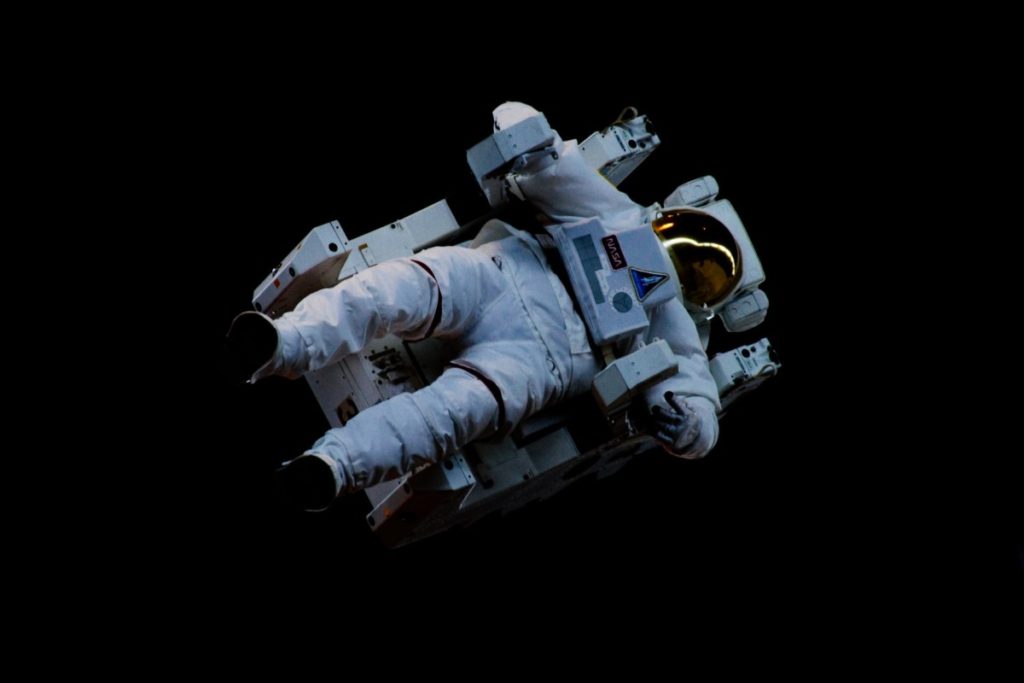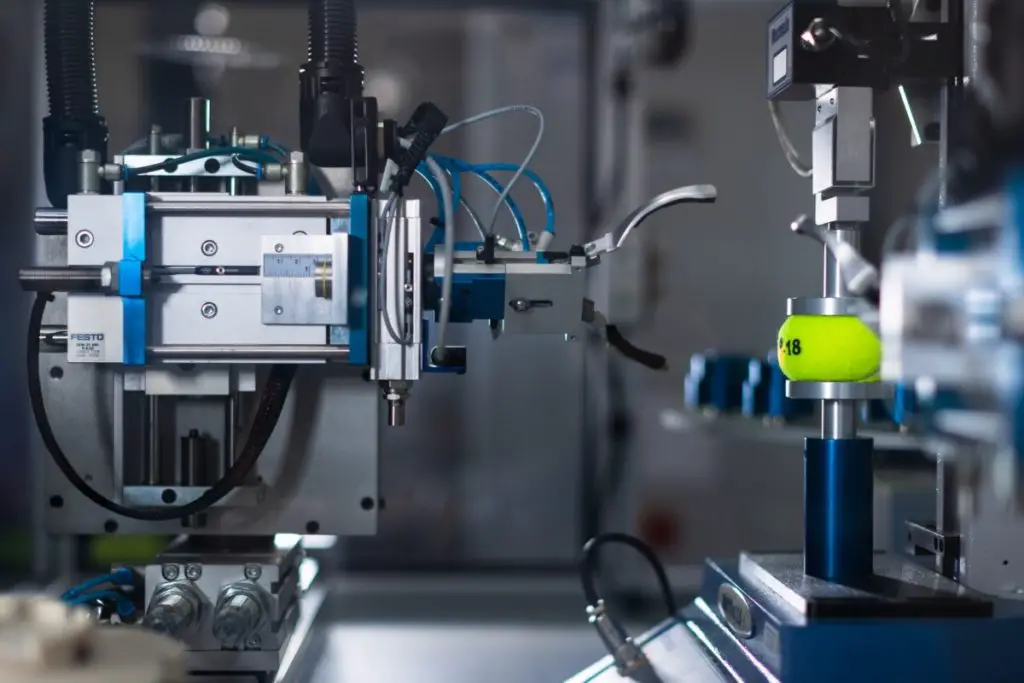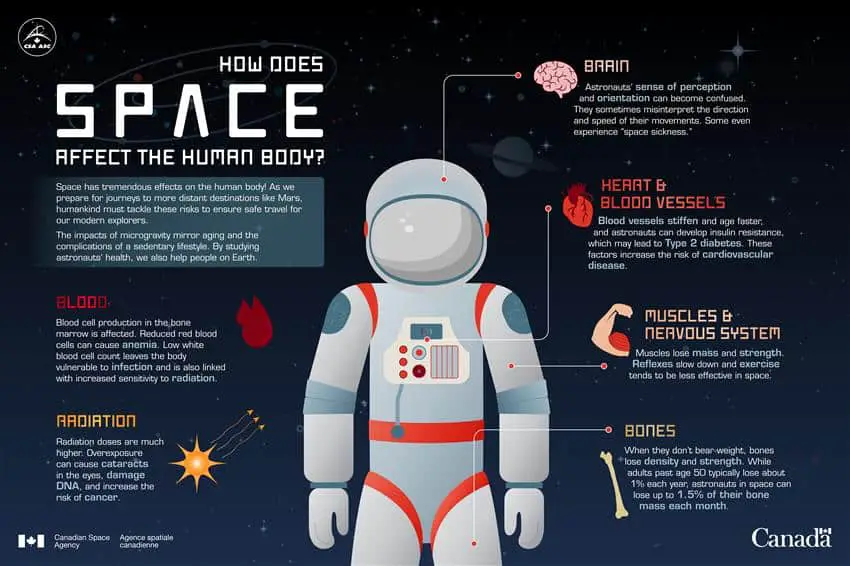Opportunities to become involved in Space Exploration does not come often, which especially reign true for NASA’s neighbors up north – Canada. Despite the collaborative efforts of the International Space Station, it is hard for individuals of different nationalities to work together in a foreign country as it often involves matters of national security.

Understanding such implications, I have decided to compile a list of ways for my fellow Canadian astrophiles to become involved in the space sector.
- Becoming an Astronaut in Canada
- Becoming a “Space” Engineer
- Becoming a Technician in the Space Sector
- Becoming a Space Scientist
- Becoming a Health Science Expert
1. Becoming an Astronaut in Canada
In accordance with the Canadian Space Agency (CSA) – “All astronauts have a few things in common: an academic background in science or technology, excellent health, and a wide range of outstanding qualities and skills.”
A little vague if I have to say so myself, but still a good starting point. Here is a compiled list of all requirements and conditions of employment to become an Astronaut in Canada.

Aside from the official requirements, it is a good reminder that becoming a member of the CSA’s astronaut corps is a very competitive process, and meeting the requirements does not guarantee the position.
Some Statistics and a Retired Astronauts
Since the first astronaut recruitment campaign in 1983, there have only been 4 campaigns ran to recruit a total of 14 Canadian astronauts. That’s 14 out of over 17772 applicants! To become the top 0.079% means you are beyond exceptional at everything you do.
Let’s take Chris Hadfield, one of the most famous Canadian astronaut for example. With a bachelor’s in mechanical engineering (with honors) and a Master of Science in Aviation Systems, he was also a fighter jet pilot as part of the Canadian Armed Forces. Before getting selected as one of four new Canadian astronauts in 1992, he also participated as a researcher and test pilot for many of NASA’s aerospace projects.
This is by no means meant to discourage any of you from your aspirations. Heck, I’m cheering everyone on! But such is the reality of the situation, and I don’t want to bring any false sense of certainty.
If you do end up becoming part of the 0.079%, congratulations! I hope you will contribute to the Space Sector in unimaginable ways.
For the rest of us, although it is a shame, but there are many other ways to become involved with the Space industry (such is the purpose of this article). And there are countless companies that are working to give everyone on Earth the chance to explore the stars. (5 Space Companies That Will Take Us Beyond the Stars)
2. Becoming a “Space” Engineer
Here’s the good news! You don’t NEED an Aerospace Engineering degree or a Ph.D. to find work in the space sector. The type of work range from designing, building, and the maintenance of spacecrafts, space stations, ground equipment, computer software, robots, spacesuits, and so much more (CSA).

Education Level
- Bachelor’s Degree
- Master’s Degree
- Ph.D.
Different levels of education can lead to different types of work. From a Bachelor’s degree to Ph.D., you are able to get involved from the planning and implementation of projects to becoming a team leader or technical expert, all depending on your depth of knowledge.
Although with that said, the likelihood of receiving a work offer will significantly increase with the amount of education received, or the amount of experience in the related sector. It’s the same, maybe even more so than other industries. The number of available positions is limited, and HR will always look for the individual that can bring more to the team.
So, figure out what piques your interest, set a goal, and find opportunities to accumulate experience to get you there.
Programs of Study (ASC)
- Aerospace Engineering
- Chemical Engineering
- Computer Engineering
- Electrical Engineering
- Electronics Engineering
- Avionics and Instrumentation Engineer
- Materials Engineering
- Mechanical Engineering
- Software Engineering
- Robotics Engineer
You can find a list of accredited engineering programs and the universities in Canada that offer them at the Engineers Canada website.
3. Becoming a Technician/Technologist in the Space Sector
The main difference between a technician and a technologist range from their education level and responsibilities.
To put it simply, technicians are practical specialists for a specific task, such as maintenance or repair, while technologists have a combination of theoretical knowledge and practical skill, which allow them to work in problem resolution, data analysis, and complex technical consultations, etc. (CCTT, CSA)
Education Requirements
- Technicians – Technical Diploma (1-2 years)
- Technologists – Engineering Technology Diploma (2-4 years)
Field of Work in the Space Sector (CSA)
- Computer
- Programmer
- Computer technician
- Network technician
- Software technician
- Electrical and Electronics
- Electrical Engineer Technician
- Electronics Engineer Technician
- Manufacturing and production support technician
- Microwave facilities maintenance technician
- Physics Engineer Technologist
- Mechanical
- Mechanical Engineering Technician
- Physics Engineering Technologist
- Robotics Technician
- Thermal system designer
- Tool designer
- Robotics
- Mechanical engineering technician
- Physics engineering technologist
- Robotics technician
- Telecommunication
- Electro-technician
- Radar technician
- Satellite technologist
- Satellite verification technologist
- Telecommunications technician
4. Becoming a Space Scientist
Space Scientists in all sense of the concept study everything related to Outer Space. It might seem very simple and straightforward, but there is a lot more to space than stars and black holes.

There are three main categories of space science according to the Canadian Space Agency.
- Space – Astronomy, Astrophysics, Physics, etc.
- Planets – Atmospheric Sciences, Geology, Meteorology, etc.
- Life – Biology, Medicine, Nutrition
Educational Requirements
- Bachelor’s Degree
- Master’s Degree
- Ph.D.
- Postdoctoral Fellowship
Similar to the educational requirements of Engineers, the more education a space scientist receives, the higher chance of getting hired at a more prestigious institute.
Post-doctorate research experience is often required to obtain a position in a university department or research institute.
Canadian Space Agency
Programs of Study (CSA)
- Aeronautics
- Astronautics
- Astronomy
- Atmospheric Sciences
- Biology
- Ceramics
- Chemistry
- Computer Science
- Planetary Science
- Geology
- Geophysics
- Mathematics
- Mechanics
- Metallurgy
- Meteorology
- Oceanography
- Physics
- Space Science
Besides these programs, having experience in programming and scripting languages (e.g. Python, .Net, Java, etc.) will be significantly useful in becoming a successful candidate. Space scientists are responsible for collecting and interpreting data to develop theories. The ability to create automated tools for manipulating, and analyzing these large amounts of data will become essential to the job.
5. Becoming a Health Science Expert
The extreme conditions of space can be very hazardous to the human body. As such, health science experts in the space sector have two primary purposes (CSA).
- Provide astronauts with clinical support
- Conduct research on how space affects human health and other living organisms

Educational Requirements
- Bachelor’s Degree
- Master’s Degree
- Ph.D.
- Postdoctoral Fellowship
- Doctor of Medicine (MD)
- Specialized (Medicine)
- Residency (Medicine)
This might be becoming redundant, but it has to be emphasized that the chance to contribute to a prestigious institution such as the Canadian Space Agency will come easier to individuals who have received higher forms of education and expereince in the industry.
Though it is possible to have a space career in life or health sciences with a bachelor’s degree alone, research work often requires a graduate degree. Principal investigators and co-investigators of space studies typically hold a Ph.D. and a tenured position in a Canadian university.
Canadian Space Agency
Programs of Study
- Biology
- Immunology
- Kinesiology
- Life Sciences
- Medicine
- Neurologist
- Cardiologist
- Immunologist
- Hematologist
- Microbiology
- Nutrition
- Physiology
- Cell Physiology
- Organ Physiology
- Pathophysiology
- Psychology
Resources for Finding Opportunities in the Canadian Space Sector
Canadian Space Directory
It’s important to understand the Canadian Space Agency is not the only organization for opportunities to get involved in the Canadian Space Sector.
The Canadian Space Directory provides a list of companies and organizations involved in Canada’s Space Industry. This can be used as a starting point to find organizations you might be interested in and see if they have opportunities available.
Post-Secondary Co-op/Internship Programs
If you are a student, this is the perfect chance for you to gain hands-on experience in the space industry.
Check out the link to see if you and your school is eligible to participate in the program.
Research Affiliate Programs
As long as you are in a program of study related to Space, any research experience gained in your degree is valuable in demonstrating your competency and may lead to more opportunities in the future.
Check out the link to see if there are any innovative research opportunities available for you that are affiliated with the Government of Canada.
